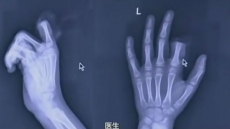Just as we often form fast opinions about each other's personalities, especially when it comes to negative traits, 15-month-old infants also form similar generalisations about others and make attempts to appease adults they consider prone to anger, a study says.
"Our research suggests that babies will do whatever they can to avoid being the target of anger," said lead study author Betty Repacholi from the University of Washington.
"At this young of an age, they have already worked out a way to stay safe. It's a smart, adaptive response," Repacholi said.
The study involving over 200 infants showed that 15-month-old babies generalise an adult's angry behaviour even if the social context has changed.
The researchers wanted to see how exposing babies to an unfamiliar adult's anger toward another adult would affect the babies' behavior in a new situation. Do the babies assume that the initial negative encounters would happen again?
"We wanted to see if babies would treat the anger they had seen before as a one-off event or whether they see it as being part of the person's character," Repacholi said.
"Our research shows that babies are carefully paying attention to the emotional reactions of adults," study co-author Andrew Meltzoff from University of Washington noted.
"Babies make snap judgments as to whether an adult is anger-prone. They pigeon-hole adults more quickly than we thought," Meltzoff pointed out.
The findings were published in the journal Developmental Psychology.
"The babies are 'emotion detectives.' They watch and listen to our emotions, remember how we acted in the past, and use this to predict how we will act in the future. How long these first impressions last is an important question," Meltzoff noted.





